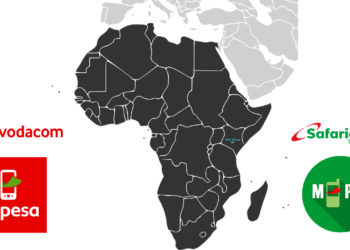In Kenya, various legal and established methods for acquiring land exist. Recognized approaches to land ownership include gifting, nomination, purchase, succession-inheritance, adverse possession, surrender, compulsory acquisition (by the government only), land allocation, land allotment, and land adjudication. The Constitution of Kenya, 2010, and applicable land laws within the country strictly discourage illegal land acquisition. Titles obtained through fraudulent or unlawful means are considered null and void, as reinforced by various court decisions and upheld by the National Lands Commission.
This guide outlines the common procedure for acquiring land in Kenya, specifically through land purchase.
The Process:
1. Due Diligence over the Property
The process of purchasing land begins by identifying a suitable parcel of land for investment. This includes assessing the pricing, the land’s utility in relation to the purchase price, and the ultimate purpose of the acquisition. It is highly advisable for the purchaser to conduct a thorough search on the property to ensure:
- The land’s existence.
- The property’s size matches the title document.
- The property’s condition aligns with the vendor’s representation.
- The vendor is registered as the owner of the property. If the vendor is a beneficial owner, they must disclose this during the transaction.
- If the vendor is a company, conducting a search on the company is recommended, which can be done online at www.ecitizen.go.ke.
2. Application In-Person
This step involves visiting the Ministry of Lands and Physical Planning headquarters or any local district or sub-county Land Office. A Kshs 500.0 fee is required for the search. The purchaser needs to submit a duly filled search application (form RL 26) and attach a copy of the title document. A land search at the Lands office typically takes about three days, following which a stamped Certificate of Official Search (form RL 27) indicating the land’s status is received.
3. Apply Online
For those who prefer an online search, the process is as follows:
- Log onto the e-citizen portal (E-Citizen) and create an account.
- Select the “Ministry of Land, Housing & Urban Development” link and choose the land search option.
- Enter the title number and complete the online land search form for Kenya before submitting.
- Confirm the details and proceed to make payment through available methods such as debit card, credit card, M-Pesa, or bank transfers. The cost for the search is Kshs 500.0.
Upon successful payment, the results can be printed or accessed on the portal at any time when logged in.
4. Contracting
Once the search results are favorable, the purchaser should request the vendor to provide a letter of offer and an Agreement for Sale. These documents outline the terms of the sale and purchase and are typically prepared by the vendor’s advocate. Both parties should participate in negotiating terms like payment and the transaction’s completion period. An Agreement for Sale should be signed, and the purchaser is required by law to make a deposit of at least ten percent (10.0%) of the purchase price to the vendor or the vendor’s advocate before signing the agreement. The deposit amount may vary depending on the vendor’s preference.
It’s important to note that a duly signed and witnessed Agreement for Sale establishes the relationship between the purchaser and vendor. If the agreement is not fully signed or the signatures are not witnessed, neither party has the right to enforce the terms of sale. However, some terms in the agreement may be implied based on the good will of both parties.
5. Procurement of Completion Documents and Payment of the Balance of Purchase Price (Pre-completion)
After signing the Agreement for Sale, the vendor is responsible for ensuring that all the required documents for the successful registration of the property transfer are available. Simultaneously, the purchaser must ensure that the balance of the purchase price is available for payment to the vendor before the completion period expires. The completion and payment periods are determined by the terms of the Agreement for Sale. The completion documents include but are not limited to:
- The Original Title Deed for the Property
- Signed and filled transfer forms
- Copies of the vendor’s Identification card or certificate of incorporation (if the vendor is a company)
- Lessors’ consent to transfer
- The Commissioner’s consent to transfer
- Land Control Board consent to sell
- A valid valuation report for the property
On or before the completion date, the vendor must notify the purchaser of their readiness to complete the transaction. In exchange for the purchase price, the vendor will then hand over the completion documents to the purchaser. If advocates are involved in the transaction, these documents will be exchanged between the advocates.
6. Registration and Post-Registration Search
The steps in this process include:
- Applying, paying, and obtaining a rates clearance certificate from the County Government. This is done by the vendor’s lawyer through consultation with the local county government lands office. The entire process takes about five days and costs Kshs. 10,000.0. The certificate confirms that there are no outstanding fees to be paid at the City County’s office.
- Applying and obtaining a Land Rent Clearance Certificate from the Commissioner of Lands. Upon payment of outstanding land rent and the application, the Commissioner of Lands issues this certificate, which proves that there are no outstanding fees to be paid to the County Government.
- Applying and obtaining Consent to Transfer from the Commissioner of Lands. This is required when transferring leasehold land held by the government under the repealed Act. The National Land Commission handles this process. Upon payment and issuance of both the Land Rent Certificate and Land Rate Certificate, an application is made in writing by the lawyer to the Commissioner of Lands, and the prescribed form is executed for consent to transfer the desired property. This process typically takes about nine days at a cost of Kshs. 1,000.0.
- Filing the transfer instrument at the Lands Office for the assessment of stamp duty payable on the transfer. The draft transfer is prepared by the buyer’s lawyer and must be approved by the vendor before being submitted at the Lands office for assessment of stamp duty. Once the transfer instrument is approved by the lawyers, it is filed at the Lands registry for stamp duty assessment. The stamp duty rate is 4.0% of the property value for urban lands and 2.0% for rural lands. The amount payable is indicated when the application is filed, and it takes approximately seven days to obtain the payment receipt (which must be paid with a banker’s check) from the bank. Payment is made directly at the Lands Office.
7. Obtain Valuation for Stamp Duty
This process includes:
- Receiving an inspection by a land officer. An inspector visits the property to verify its development and condition. Due to the lack of transportation, inspectors often need to be picked up in person and driven to the site. Inspections are usually unscheduled and can occur within a day or, in some cases, as long as a month. However, the duration is not fixed, and in some instances, it can take months for a valuation to be completed. Once the evaluator inspects the property, a report is compiled, and the assessed value is endorsed on the transfer.
- Obtaining the valuation of the property by a government evaluator. The inspector evaluates the property’s purchase price to ensure accurate tax payment. If the assessed value differs from what the parties indicated, an additional payment may be requested.
8. Stamp Duty Payment
This involves:
- Endorsing the value for stamp duty and assessing the stamp duty. This is completed by filling the Stamp Duty form, including the purchase price. The stamp duty assessment officer will assess the payable stamp duty and indicate the amount on the forms. This process takes three days.
- Paying the stamp duty. It is mandatory to pay stamp duty with a banker’s check, and the payment is processed through commercial banks. Approved banks include the Kenya Commercial Bank and The National Bank of Kenya. Payment is made to the Commissioner of Domestic Taxes on behalf of the Commissioner of Lands. It takes about four days for the Kenya Revenue Authority to confirm receipt of payment. Payment can be made online via the KRA Itax portal.
- Submitting the documents for franking or obtaining franked documents. After paying the stamp duty, the transfer documents are submitted for franking to confirm that any charges or taxes, such as the stamp duty, have been paid.
9. Land Registration
The registration process includes:
- Paying a registration fee of Kshs 500.0 and filling out a booking form.
- Lodging the completion documents with the Lands Office for the registration of the property transfer. The franked transfer documents are lodged for registration at the Lands Office. These documents include the original certificate of Title, Rates Clearance Certificate, Land Rent Clearance Certificate, and the consent transfer. This process typically takes about 12 days.
After successful registration, you will receive the following documents:
- An original title deed in the name of the buyer
- Registered transfer forms
- The payment slips for stamp duty
Post-Purchase Activity:
After a week or two, the buyer should conduct another search with the Ministry of Lands to confirm that the land is now registered under their name.
This detailed guide on land acquisition in Kenya, specifically through land purchase, provides a step-by-step approach to ensure a smooth and legal transaction process. It is important to follow the legal procedures and requirements outlined by the government to ensure a secure and valid land transaction.
















